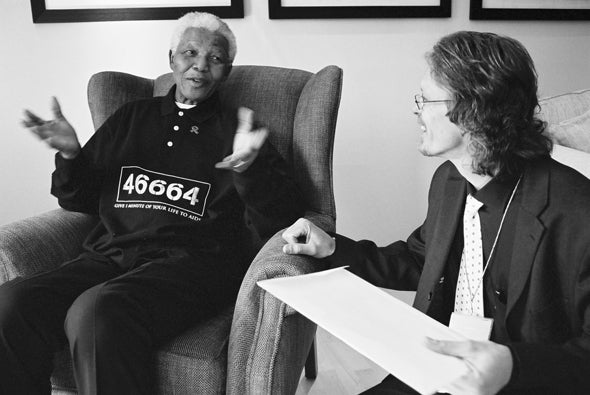The Audio-Visual Africa project is rooted in a recent archival movement toward championing social memory and representation within the archival record. Advocates for social memory and social justice present Africa as a compelling case study due to its long history of authoritarian rule, warfare, and colonialism. One of the most influential figures in this conversation is South African archivist Verne Harris, former deputy director of the National Archives of South Africa. Harris’s article, “The Archival Sliver: Power, Memory, and Archives in South Africa” (2002) strongly relates to the Audio-Visual Africa project and its objectives, namely to preserve, repatriate, and provide access to African audio-visual materials.

In “The Archival Sliver,” Harris challenges that notion that the archival record reflects reality, accusing the South African apartheid government of censoring its opponents and destroying public and non-public records of dissent. He further identifies apartheid-era archivists as complicit in the creation of a sociopolitical narrative largely dominated by white men and institutions–a narrative that failed to reflect South African reality. Through appraisal (choosing which materials are valuable and deserving of inclusion in an archive), archivists in South Africa preserved the memory of the dominant sociopolitical order without painting a full picture of South Africa during the apartheid era.
Using apartheid South Africa as a jumping-off point, Harris concludes that archives fundamentally offer researchers “a sliver of a sliver of a sliver” of reality (65). First and foremost, institutions cannot preserve all of the records produced by their constituents. This means that already, only a sliver of history is preserved. Archivists actively accept and reject potential additions to the archive based on societal norms and expectations, thus preserving a sliver of a sliver. Add in the fact that most archives cannot preserve all versions of a record, and it is unsurprising that researchers are left with materials that encapsulate a sliver of a sliver of a sliver of history.
Spurred on by the writing of Harris and others, archivists around the world are attempting to combat this problem by documenting the experiences of the marginalized, oppressed, and the societal “other.” Stay tuned for “On the ‘Archival Sliver’ and Audio-Visual Africa, Part 2” to learn more about how the Audio-Visual Africa project and its goals reflect Harris’s argument!